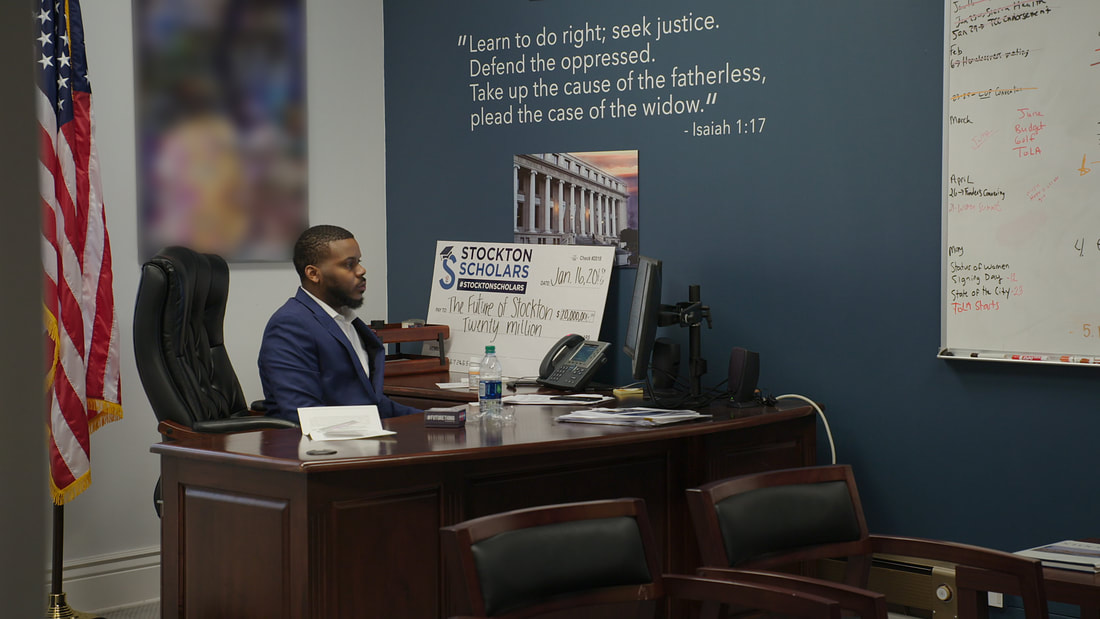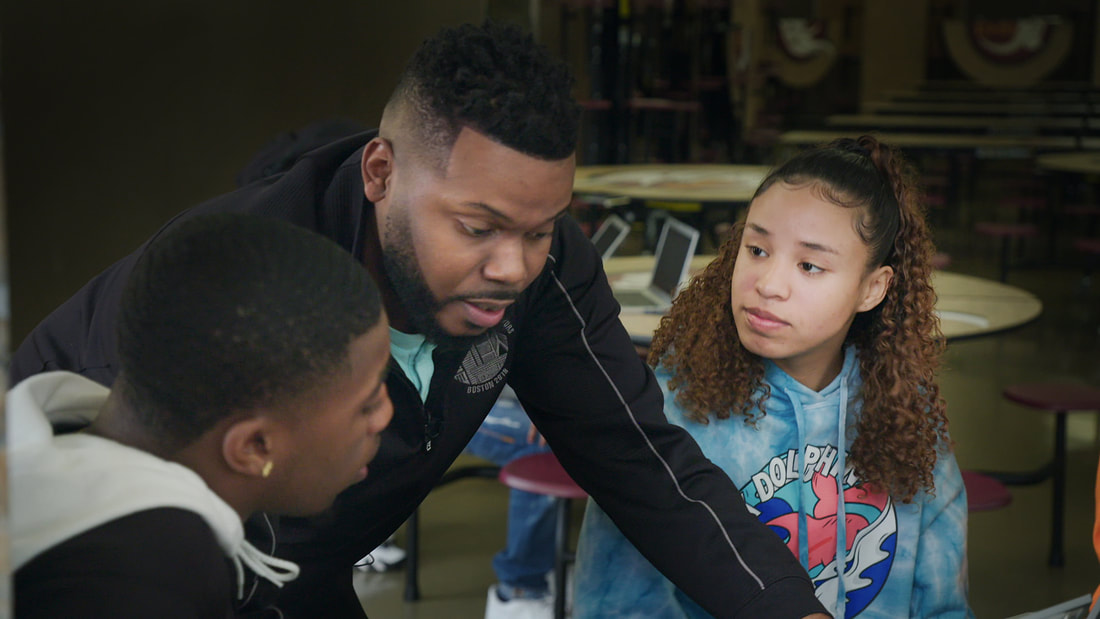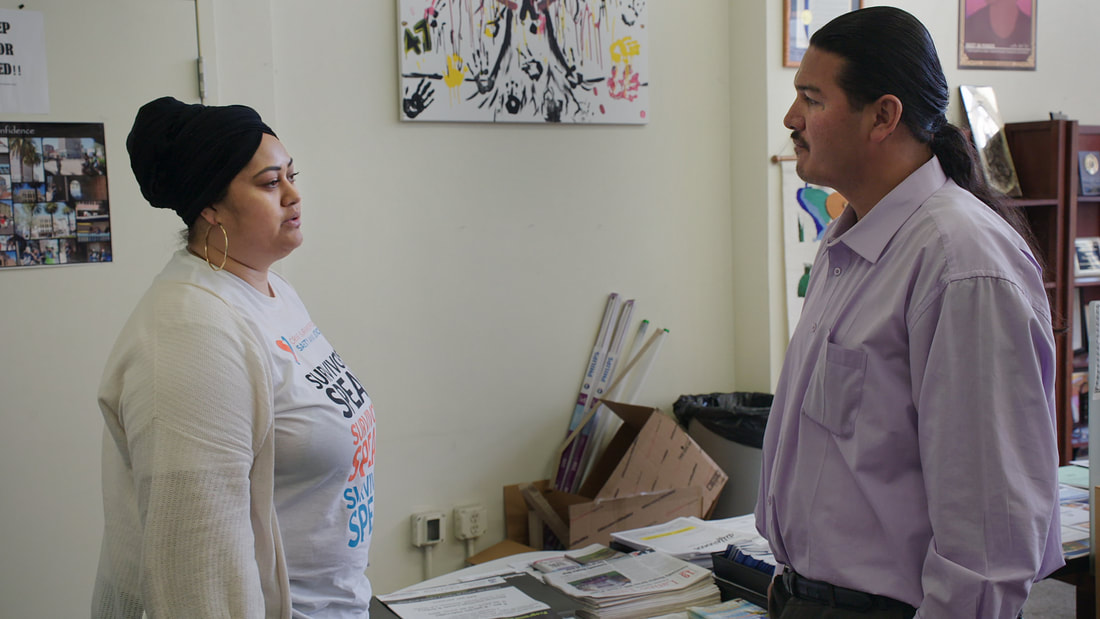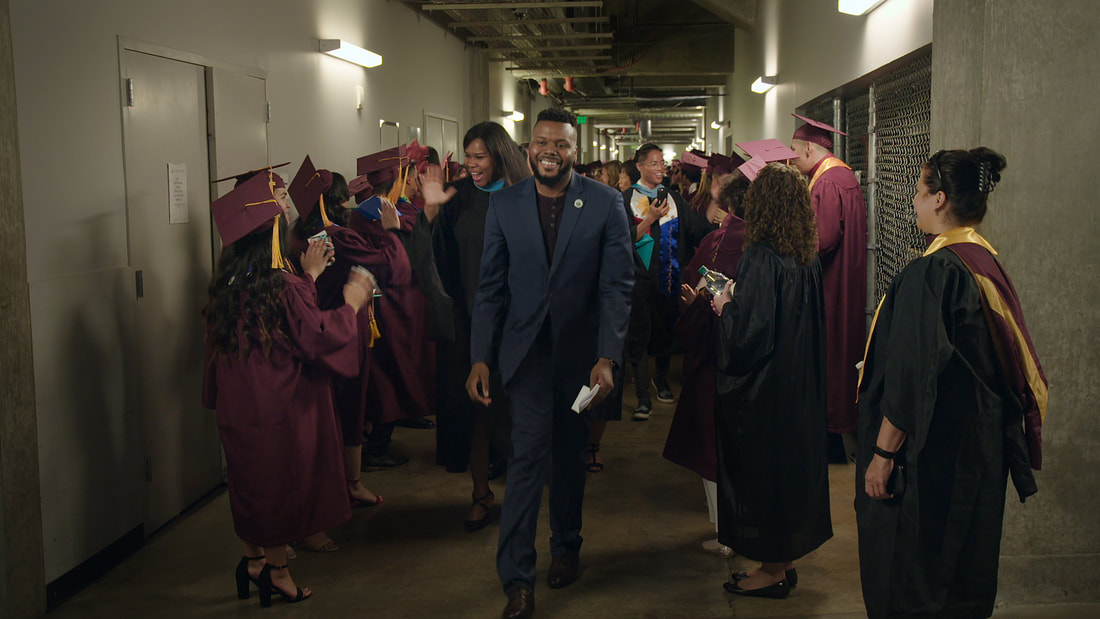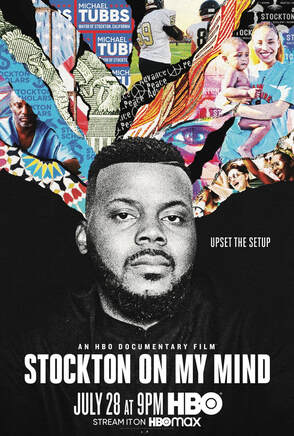 The 2020 American presidential election is well underway, one that may prove to be the most interesting (or frustrating) elections of the past few decades as the candidates navigate campaign strategies in the midst of a global pandemic. As voters tune in to the presidential debates and our social media accounts flood with political ads and memes, it may seem like the next chapter in our country’s history all depends on the winner of this next big election. It can be easy to forget about the smaller, local elections and the changes we can make in our communities by researching and voting for local officials. As Marc Levin’s new documentary, Stockton On My Mind, shows, local elections can be a catalyst for social justice and meaningful changes in our own backyards. In 2016, on the same day that Donald Trump won the presidential election, 26-year-old Michael Tubbs became the first black mayor, not to mention the youngest, of Stockton, California. Stockton On My Mind highlights not only Tubbs’s journey and the positive impact he has had on his hometown, but the strength of local communities and the power of reform from within. It’s a thought-provoking film that seeks to tell a different narrative about low-income, high-crime communities and to inspire audiences to pursue lasting changes in their own towns. As Stockton On My Mind illustrates, it wasn’t a wealthy family or good connections that allowed Tubbs to become the first black mayor of Stockton. In fact, for most of his childhood, the cards were stacked against him. With a teen mom and a father in prison, Tubbs was continuously told that he was headed for one of two places: jail or death. He was raised in a town known for its high crime rates, a town that many people wanted to leave if they had the chance. With its many financial struggles, Stockton was also one of the first major cities to declare bankruptcy during the Great Recession in 2008. Despite the hand he was dealt, Tubbs had a vision for change in Stockton and refused to accept the bleak future laid out for him. He pursued educational opportunities and stood up to systematic racism, confronting teachers who treated him differently than his white classmates. He attended Stanford University and returned to Stockton to serve on the city council for three years before he was elected mayor in 2016. Stockton On my Mind explores some of the key programs he has implemented since taking office, such as the Stockton Scholars program and a universal basic income plan for some members of the community. It also tells the stories of Stockton citizens and illustrates how they, like Tubbs, have worked through hardships and injustice with a resilient spirit. With honest and personal interviews, telling social media snippets, and nostalgic home videos, Stockton On My Mind is an uplifting film that weaves together many individual stories to create a new narrative for a strong community. Stockton On My Mind isn’t flashy or overly ambitious in its style. While it’s not narratively groundbreaking, it organizes a lot of information into one cohesive story, creating subtle but effective transitions between Tubbs’s journey and the individual stories from members of his community. As it pieces these stories together to paint a picture of a resilient, strong community, it doesn’t try to manipulate its audience’s emotions or add extra drama to already powerful interviews. Stockton On My Mind isn’t a poverty-tourism documentary or an emotionally manipulative PSA that hopes to inspire its audience to donate. Rather, it steps back and lets the citizens of Stockton tell their own stories without added manipulation or extra frills. Stockton On My Mind is a documentary that invites its audience to listen. It presents members of the Stockton community as hopeful role-models for other struggling communities rather than as charity-cases that deserve pity. While Tubbs’s story could just as easily have been told as a tear-jerker, Stockton On My Mind seeks to inspire its audience rather manipulate their emotions. Stockton On My Mind achieves its inspirational message by keeping its tone conversational, allowing the audience to feel like we’re the ones walking around the town and listening to people tell stories. It doesn’t shy away from life’s everyday embarrassing moments, like when Tubbs struggles to keep the attention of an audience of high school juniors during a pep rally because they are more interested in laughing at his untied shoe. It effectively uses these moments to humanize Tubbs, showing us that he’s not just a politician or a down-on-his-luck kid that made it big. Further, Stockton On My Mind doesn’t let itself get bogged down in confusing political details. While it takes the time to explain some of Tubb’s biggest projects, it doesn’t try to outline every step of the process or get wrapped up in defending Tubbs against political backlash. The film certainly acknowledges that Tubbs has faced harsh criticism, but it doesn’t let that criticism steal the spotlight. Much like Tubbs himself, the film gracefully addresses criticism without getting defensive, letting the stories of the people speak to the ways that Tubbs’s plans have succeeded. True to its title, Stockton On My Mind keeps its focus on the town of Stockton and the efforts of the people who live there, highlighting the power of change from within. The film is not a savior-complex documentary or a charity story. Instead, it’s all about finding the power to implement change in your own community, change that will eventually spread to make a larger impact. Stockton On My Mind takes a step towards changing the narrative around impoverished communities, showing how towns like Stockton can grow into the kind of places that others look to as an example. Premiering on HBO at 9pm July 28th, 2020. Final Grade: B
1 Comment
|
"Our embodied spectator, possibly perverse in her fantasies and diverse in her experience, possesses agency...finally, she must now be held accountable for it." Categories
All
|
